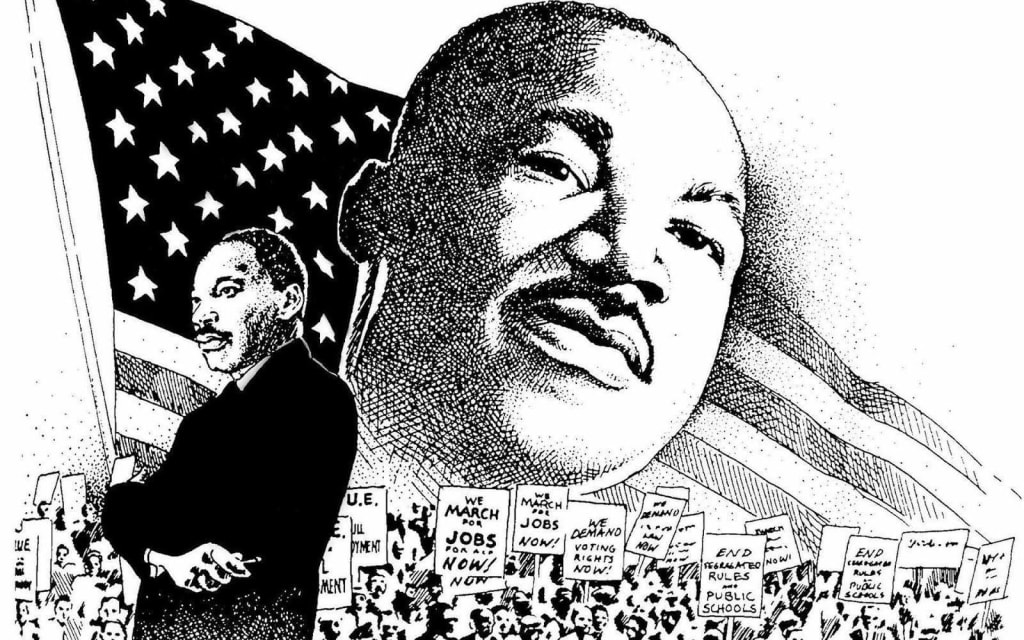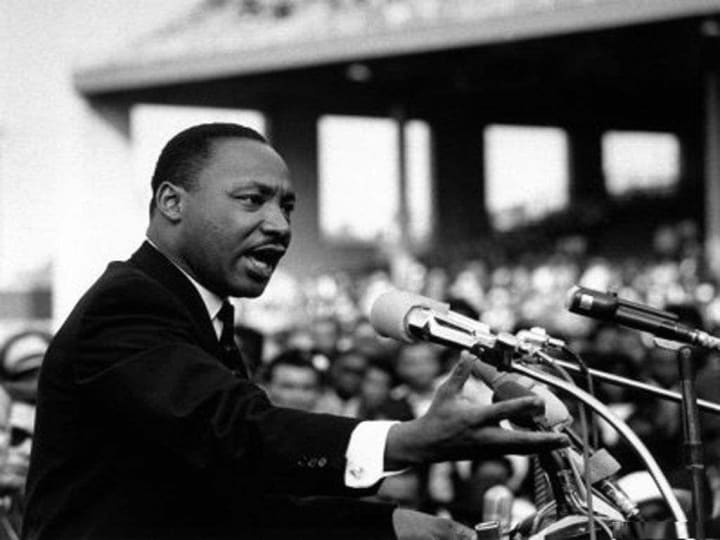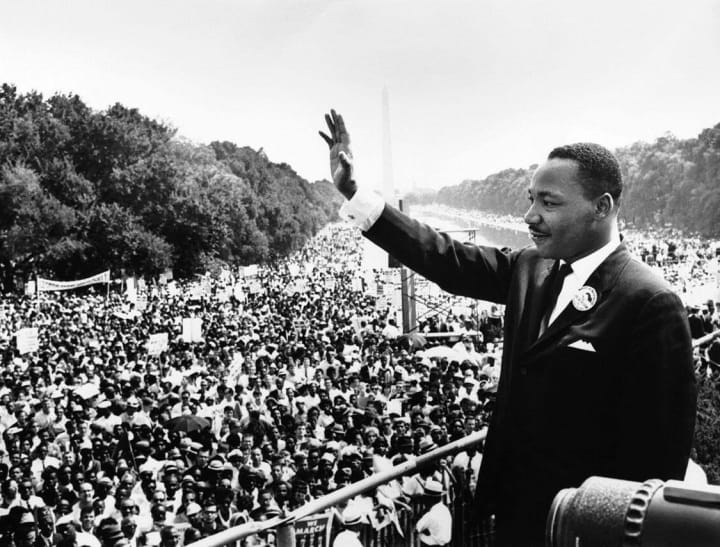Dr Martin Luther King Jr: A Civil Rights Icon and Champion of Nonviolence
A Look at the Life, Legacy, and Impact of the Civil Rights Movement's Most Iconic Leader

Dr. Martin Luther King Jr. is a name that is synonymous with the Civil Rights Movement in America. He was a Baptist minister, civil rights leader, and one of the most iconic figures in American history. Dr. King is best known for his role in the advancement of civil rights using the tactics of nonviolence and civil disobedience based on his Christian beliefs and the nonviolent activism of Mahatma Gandhi.
Dr. King was born on January 15, 1929, in Atlanta, Georgia, and was the second child of Martin Luther King Sr. and Alberta Williams King. He was raised in a middle-class family and received a good education, graduating from Morehouse College in 1948. He then went on to Crozer Theological Seminary in Chester, Pennsylvania, where he earned a Bachelor of Divinity degree. In 1955, he earned a PhD in systematic theology from Boston University.
Dr. King's rise to fame began in 1955 when he was elected as the leader of the Montgomery Bus Boycott. The boycott was sparked by the arrest of Rosa Parks, a black woman who refused to give up her seat to a white person on a Montgomery, Alabama, bus. The boycott lasted for 385 days and resulted in the desegregation of the city's buses.

This event not only brought national attention to the Civil Rights Movement, but it also propelled Dr. King into the spotlight as a leader of the movement. He soon became a prominent figure in the Civil Rights Movement, leading marches, boycotts, and peaceful protests to fight for the rights of African Americans.
In 1957, Dr. King helped to found the Southern Christian Leadership Conference (SCLC), an organization that was dedicated to the non-violent advancement of civil rights for African Americans. He served as the organization's first president and was the driving force behind many of the SCLC's most successful campaigns, including the Montgomery Bus Boycott, the Albany Movement, and the Birmingham Campaign.
One of Dr. King's most famous speeches, "I Have a Dream," was delivered on August 28, 1963, at the March on Washington for Jobs and Freedom. The speech, which was given in front of a crowd of over 250,000 people, outlined his vision for a future in which all Americans would be treated as equals, regardless of their race. The speech is widely considered to be one of the most important speeches in American history and is still remembered and celebrated to this day.
Dr. King's efforts to end segregation and discrimination were met with fierce resistance, and he was frequently arrested and imprisoned. He was also the target of numerous death threats, and on April 4, 1968, while standing on the balcony of his hotel room in Memphis, Tennessee, he was assassinated by James Earl Ray.

Dr. King's death was a tragic loss, not only for the Civil Rights Movement but for the entire nation. However, his legacy lives on, and his message of nonviolence and equality continues to inspire people all over the world. In 1986, the United States Congress designated the third Monday in January as Martin Luther King Jr. Day, to honour his legacy and to recognize his contributions to the Civil Rights Movement.
Dr. King's impact on the Civil Rights Movement was significant and far-reaching. He not only helped to change laws and policies, but he also helped to change the hearts and minds of people all over the world. He was a true leader, a visionary, and a champion of nonviolence. His message of equality and justice continues to resonate with people today, and his legacy is an important reminder of the power of peaceful protest and the importance of working towards a more just and equitable society.
Dr. King's leadership and advocacy for nonviolent civil disobedience had a significant impact on the Civil Rights Movement. He believed that nonviolence was the most effective way to achieve change and that it was the moral responsibility of individuals to resist unjust laws and policies. He believed that love and compassion were more powerful weapons than hatred and violence. He often quoted Gandhi's words, "The weak can never forgive. Forgiveness is the attribute of the strong."
Dr. King's leadership and his message of nonviolence and civil disobedience influenced many other civil rights leaders and activists, including Cesar Chavez, Nelson Mandela and Malala Yousafzai. His influence can be seen in the protests and movements for justice and equality around the world today.
Dr. King's message also had a profound impact on the United States. His speeches and peaceful protests played a significant role in the passing of the Civil Rights Act of 1964 and the Voting Rights Act of 1965, which helped to end segregation and discrimination in the United States. These laws had a significant impact on the lives of African Americans and other minorities and helped to pave the way for greater equality and justice in the United States.
In conclusion, Dr. Martin Luther King Jr. was a visionary leader and a champion of nonviolence. His message of equality, justice, and nonviolence continues to inspire people all over the world. His legacy lives on in the laws and policies that have been passed in his name and in the hearts and minds of people who continue to fight for justice and equality. He remains an important figure in the Civil Rights Movement and a symbol of hope and change for many.
About the Creator
Adria_X_Rae
"Dreamer with a vivid imagination, expressing inner world through literature, music & visual arts. Emotionally intuitive, exploring mental landscapes through creative pursuits."






Comments
There are no comments for this story
Be the first to respond and start the conversation.